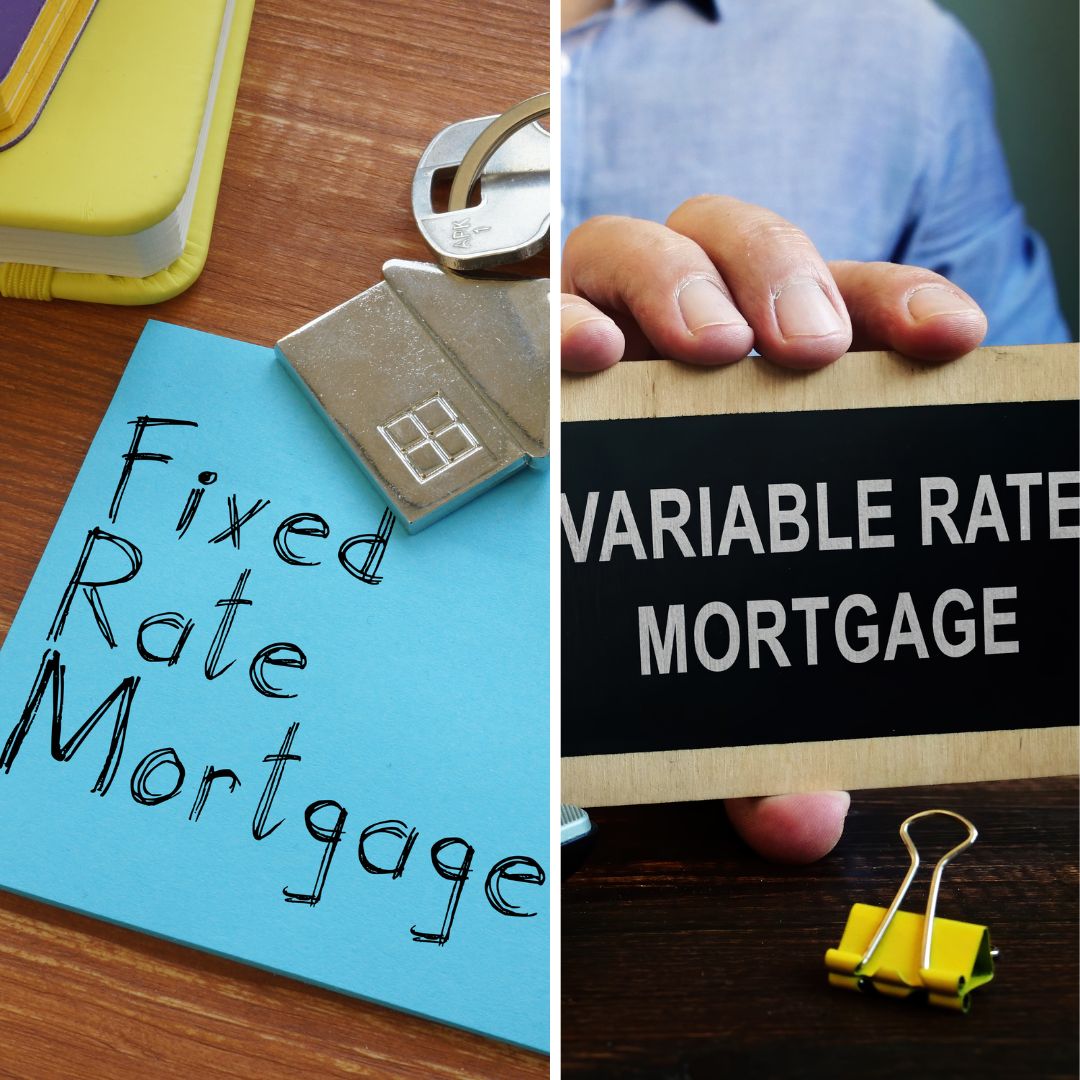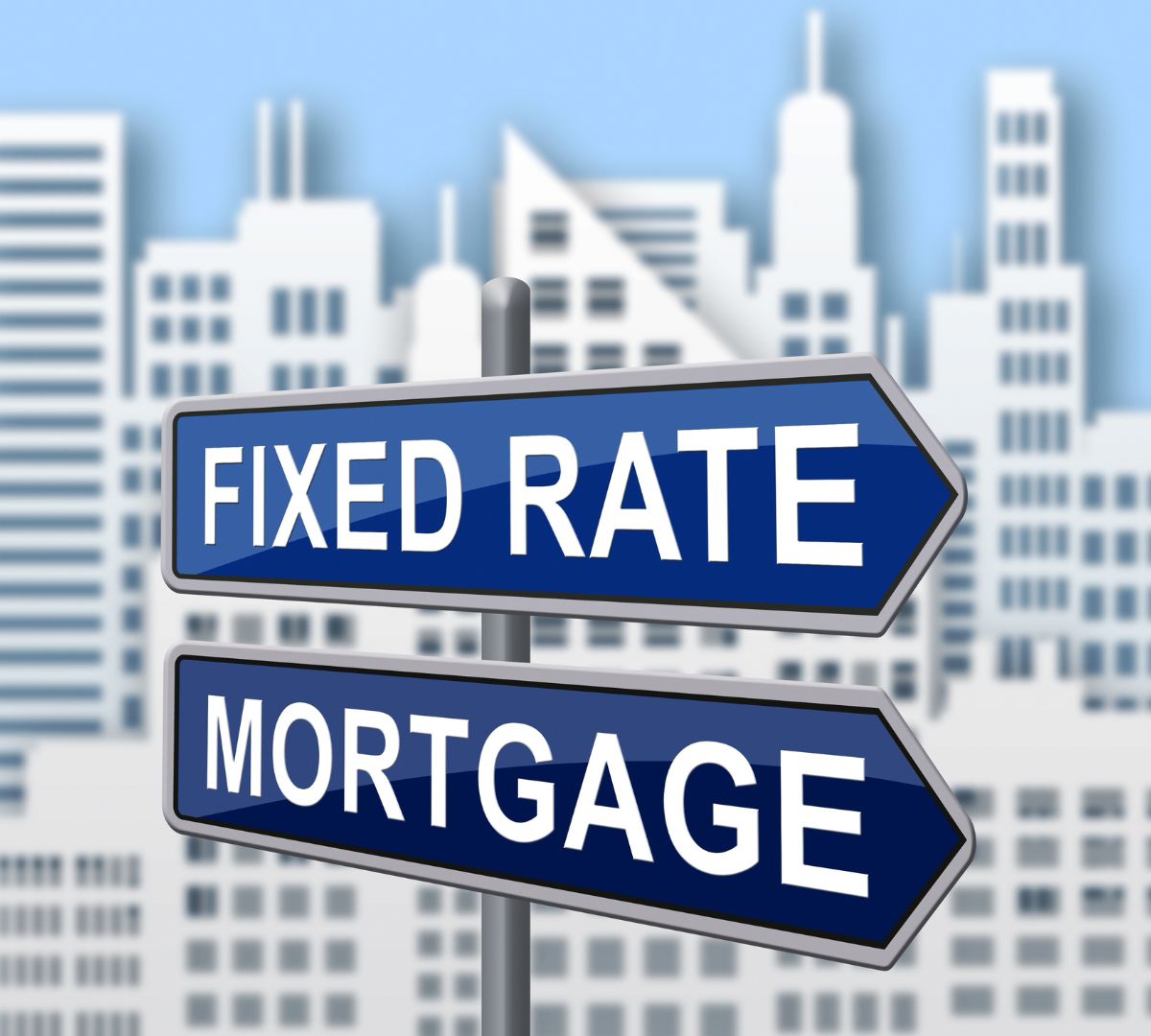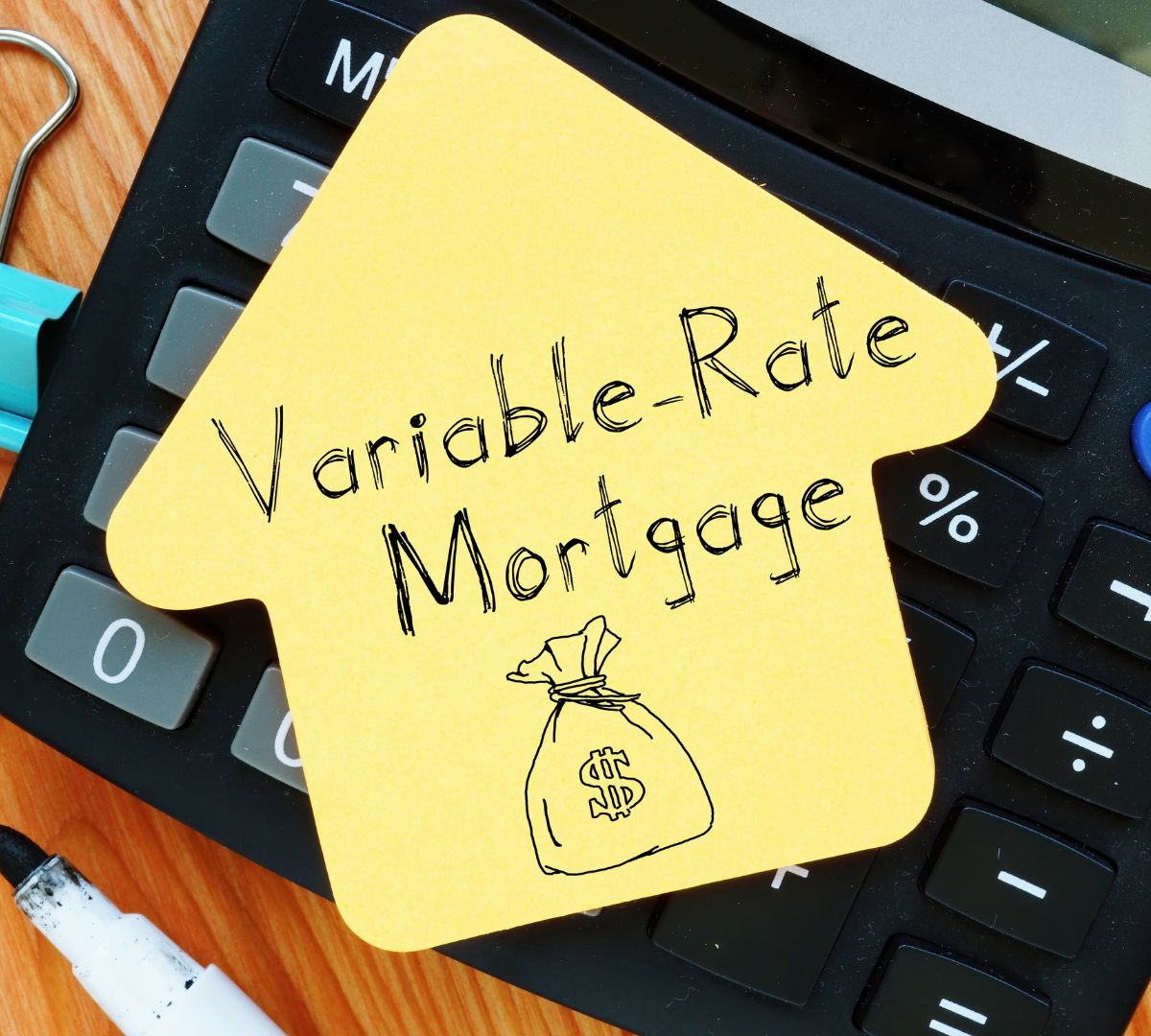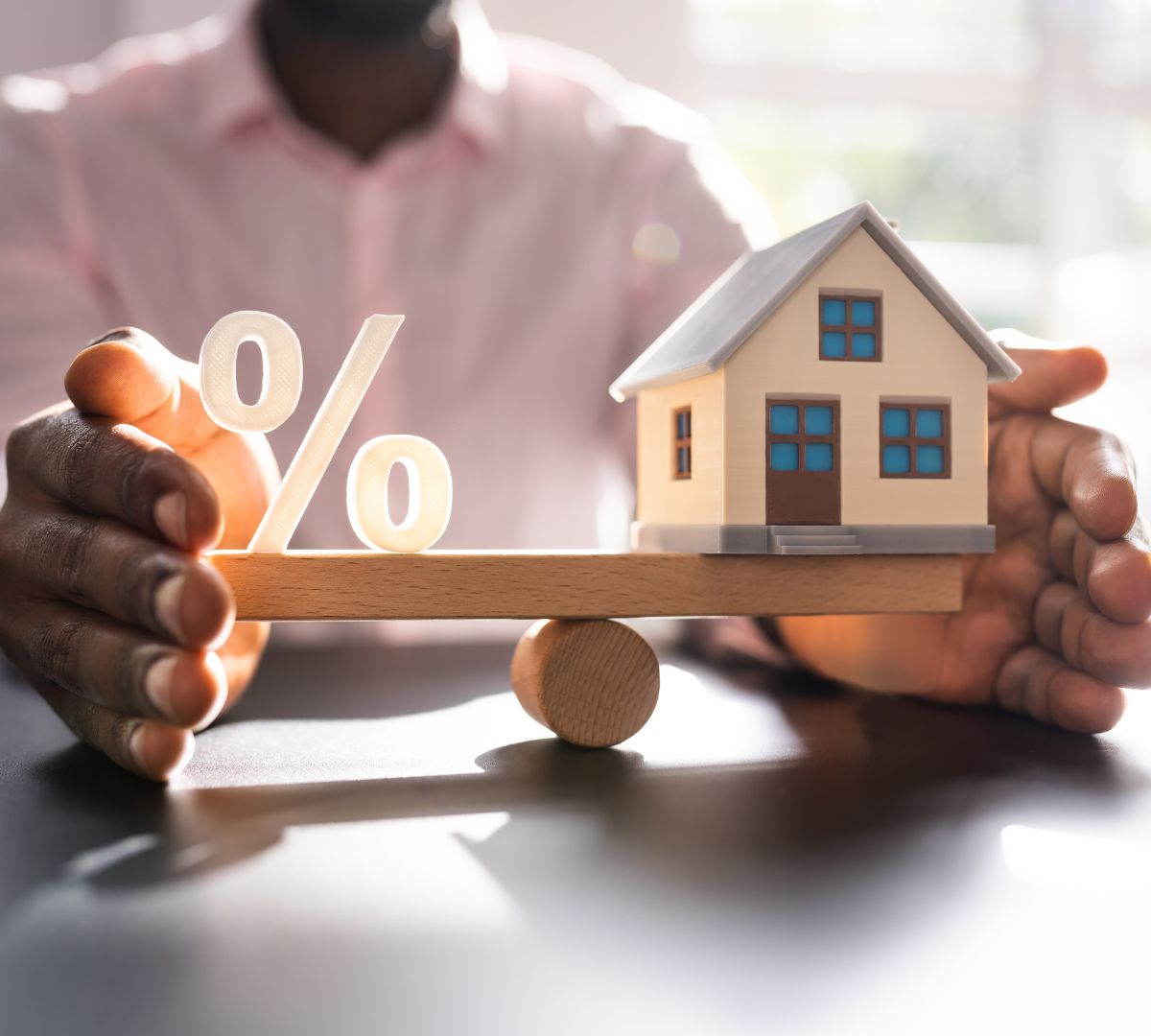Home » Fixed vs. Variable Rates: Finding the Best Mortgage Option for Sydney Homeowners
Are you dreaming of owning a slice of the vibrant Sydney skyline, but feeling overwhelmed by the mortgage maze? You’re not alone! One of the most crucial decisions you’ll face on your journey to homeownership is choosing between fixed and variable interest rates. This choice can significantly impact your finances with Sydney’s dynamic property market and fluctuating economic conditions. In this blog post, as a Mortgage Broker in Sydney, we’ll break down these two options in an easy-to-understand way, helping you navigate their pros and cons. Join us as we uncover which rate could be your secret weapon in securing the best deal for your beautiful new home in Australia’s harbour city!

For those looking to purchase a home in Sydney, one of the biggest considerations is finding the right mortgage with affordable interest rates. However, before diving into the world of mortgages, it’s important to understand the difference between fixed and variable rates.
A fixed-rate mortgage is a loan where the interest rate remains constant throughout the entire term of the loan. This means that your monthly payments will not change for a set period of time, usually 1-5 years or sometimes even longer. Fixed-rate mortgages are popular among homeowners because they offer stability and predictability in budgeting and planning for future expenses.
On the other hand, variable-rate mortgages have an interest rate that can fluctuate during the term of the loan. The fluctuations are typically tied to a base lending rate set by the Reserve Bank of Australia (RBA) which can be affected by economic conditions such as inflation and unemployment. As a result, your monthly payments may increase or decrease depending on changes in interest rates.
Fixed-rate mortgages are one of the most popular mortgage options for homebuyers in Sydney. As the name suggests, a fixed-rate mortgage comes with an interest rate that stays fixed for the entire term of the loan. While there are many advantages to choosing a fixed-rate mortgage, there are also some potential downsides that buyers should consider before making their decision.
Stable and Predictable Payments: One of the main advantages of a fixed rate mortgage is that it offers stability and predictability in terms of payments. With a fixed interest rate, homeowners can budget for their monthly payments without worrying about fluctuations or unexpected increases in interest rates.
Protection Against Rising Interest Rates: In times of economic uncertainty, variable interest rates tend to increase, making monthly payments more expensive for homeowners with variable mortgages. With a fixed rate mortgage, buyers don't have to worry about these sudden changes and can feel secure in knowing that their interest rate will remain unchanged.
Long-term Savings: A major advantage of locking in a low-interest rate through a fixed-rate mortgage is long-term savings on overall interest payments. Even if market conditions change and interest rates decrease after taking out the loan, homeowners can still enjoy paying less than they would have with a variable-rate mortgage.
Limited Flexibility: Unlike adjustable-rate mortgages that provide borrowers with flexibility by allowing them to take advantage when market conditions improve, borrowers who choose this type of loan won't be able to enjoy lower rates even if they occur during their loan period without refinancing at potentially high costs.
While fixed rate mortgages offer stability, predictability and long-term savings for Sydney buyers, they also come with some potential downsides such as higher initial interest rates and lack of flexibility. Buyers should carefully weigh these pros and cons when deciding whether this type of mortgage is right for them.

When it comes to getting a mortgage in Sydney, one of the biggest decisions for homeowners is whether to opt for a fixed rate or variable rate. Each option has its own set of pros and cons, which makes it important for buyers to carefully consider their financial situation and long-term plans before deciding on a mortgage.
Variable rate mortgages are loans with an interest rate that can fluctuate over time, usually based on changes in the market and economic conditions.
One of the main advantages of variable rate mortgages is that they often have lower initial interest rates compared to fixed-rate mortgages. This can result in lower monthly payments and potentially significant savings over time.
Variable rate mortgages offer the opportunity for borrowers to take advantage of lower interest rates if they decrease in the future. This can be beneficial if you plan on staying in your home for a shorter period or have confidence that interest rates will not drastically increase.
Variable rate mortgages often offer more flexibility in terms of repayment options and penalties for early repayment. This can be helpful for borrowers who have irregular income or expect to make extra payments towards their mortgage.
Ultimately, the decision to opt for a variable rate mortgage in Sydney will depend on your personal financial situation and risk tolerance. It’s important to carefully consider all factors before making a decision and consult with a financial advisor or mortgage broker in Sydney if you have any doubts.

When it comes to choosing a mortgage option for your home in Sydney, one of the key decisions you’ll need to make is whether to go with a fixed or variable interest rate. Both options have their own pros and cons, so it’s important to carefully consider your personal financial situation before making a decision.
One of the primary things to consider when deciding between fixed and variable rates is the current market interest rates. If interest rates are low at the time you're looking to secure a mortgage, opting for a fixed rate may be more beneficial as it will lock in that low rate for the duration of your loan. On the other hand, if rates are expected to decrease in the future, choosing a variable rate may save you money in the long run.
Another important factor is your risk tolerance level. Fixed rates offer stability as they remain unchanged throughout the term of your loan, which can be reassuring for those who prefer predictability in their finances. However, with variable rates, there is always the possibility that interest rates could increase or decrease over time, which can be both advantageous and stressful depending on one's risk appetite.
Fixed rates provide certainty when budgeting as borrowers know exactly how much their monthly payments will be for the entire duration of their loan term. This can help homeowners plan their finances better and avoid any unexpected surprises due to fluctuating interest rates.
The length of your loan term also plays a role in determining which type of rate would be more suitable for you. Variable rates are usually lower than fixed ones initially but may fluctuate over time and eventually surpass fixed rates as market conditions change. If you opt for a longer-term mortgage (e.g., 15-30 years), locking in an attractive fixed rate may be a more sensible option to avoid potential future interest rate increases.
Variable rates offer greater flexibility compared to fixed ones. Most variable loans come with the option to make extra repayments without penalty, which can help reduce the overall interest you pay and shorten the life of your loan.
Ultimately, there is no “one size fits all” answer when it comes to choosing between fixed and variable rates for your mortgage in Sydney. It’s vital to carefully weigh up your options and consult with a financial advisor or mortgage brokers in Sydney who can provide personalized advice based on your individual circumstances.
Long-term financial planning is a crucial aspect of homeownership in Sydney. It involves making strategic decisions about mortgage rates that not only suit your current financial situation but also allow you to secure a stable and secure future. One of the key factors to consider when selecting a mortgage rate is whether to opt for a fixed or variable rate.
A fixed-rate mortgage refers to an interest rate that remains constant throughout the entire loan term, which is usually between 10-30 years. This means that your monthly mortgage payments will remain the same regardless of any changes in the market interest rates. On the other hand, variable-rate mortgages have fluctuating interest rates tied to an index such as the Reserve Bank of Australia's cash rate or lender's prime lending rate. This means that your monthly payments can increase or decrease based on market conditions.
Fixed-rate mortgages offer predictability and stability since your monthly payments remain unchanged for the duration of your loan term. This allows you to budget more effectively without having to worry about increases in monthly repayments due to rising interest rates. Additionally, during times of economic uncertainty or high-interest rates, fixed-rate mortgages provide peace of mind knowing that your mortgage repayments will not increase.
However, there are also potential downsides to choosing a fixed-rate mortgage for long-term financial planning. The main issue being that if interest rates were to decrease significantly during your loan term, you would not benefit from lower monthly payments unless you refinance or renegotiate with your lender. Moreover, fixed-rate mortgages often come with higher upfront fees compared to variable-rate mortgages.
On the other hand, variable-rate mortgages offer flexibility and lower upfront fees compared to fixed-rates loans. When economic conditions are favorable and interest rates are low, borrowers with variable-rate mortgages can enjoy lower monthly repayments. Additionally, most variable-rate loans come with the option to switch to a fixed rate should interest rates increase significantly.
When it comes to long-term financial planning for Sydney residents, it ultimately boils down to personal preferences and risk tolerance. Fixed-rate mortgages provide stability and predictability while variable-rate mortgages offer flexibility and potential savings in certain market conditions. It is important to carefully evaluate your financial situation and future goals before making a decision on which option is best suited for you.

When it comes to purchasing a home in Sydney, one of the biggest decisions homeowners face is choosing between a fixed or variable mortgage rate. Both options have their advantages and disadvantages, and it's essential for homeowners to carefully consider their financial situation and long-term goals before making a decision.
When it comes to purchasing a home in Sydney, one of the biggest decisions homeowners face is choosing between a fixed or variable mortgage rate. Both options have their advantages and disadvantages, and it's essential for homeowners to carefully consider their financial situation and long-term goals before making a decision.
One of the most significant mistakes that Sydney homeowners make when choosing a mortgage rate is not doing enough research. Many people simply go with whatever option their bank or lender recommends without researching other rates and terms. This can be a costly mistake as different lenders offer different rates and terms, and failing to shop around can result in paying more interest over the life of the loan.
Another mistake is underestimating the importance of considering long-term financial goals. Some homeowners may opt for a lower initial rate without fully understanding how much they will end up paying in total interest over the life of the loan. It's crucial to calculate potential savings or costs for both fixed and variable rates based on your long-term financial goals before deciding which option is best for you.
Furthermore, many homeowners fail to consider how changes in interest rates could impact their budget. While variable rates often start off lower than fixed ones, they are subject to fluctuations depending on market conditions. If interest rates rise significantly, this could mean higher monthly payments that may become difficult to manage. It's important to carefully analyze your budget and assess whether you would be able to handle potential increases in monthly payments if you choose a variable rate.
Some homeowners make the mistake of only considering current market conditions instead of looking at historical trends. Just because interest rates are low now doesn't necessarily mean they will stay that way forever. Taking into account past fluctuations can help predict future trends and aid in making an informed decision.
Avoiding these common mistakes can help Sydney homeowners make a more informed decision when choosing between fixed or variable mortgage rates. It’s crucial to do thorough research, consider long-term financial goals, and assess the potential impact of market fluctuations to ensure that you select the best mortgage option for your specific needs.

After comparing the pros and cons of fixed and variable mortgage rates for Sydney homeowners, it is time to answer the ultimate question – which rate is best? The truth is, there is no one-size-fits-all answer to this question. It ultimately depends on your personal financial situation, risk tolerance, and future plans.
If you are someone who values stability and wants to know exactly what your monthly payments will be for the entirety of your mortgage term, then a fixed rate might be best for you. This type of rate provides peace of mind as it will not fluctuate with market changes. Additionally, if interest rates are low at the time you secure your mortgage, a fixed rate can lock in those low rates for the duration of your loan. This can potentially save you thousands of dollars over time.
On the other hand, variable rates can offer lower initial interest rates and provide flexibility for those with more risk tolerance. If you believe that interest rates will stay low or decrease in the future, then a variable rate may be beneficial as it allows you to take advantage of these changes. However, there is also a chance that interest rates could rise during your mortgage term, resulting in higher payments.
In the end, there is no right or wrong answer when it comes to choosing between fixed and variable mortgage rates. It’s important to carefully consider your individual needs and circumstances before making a decision. Consult with a financial advisor or mortgage brokers in Sydney to help you navigate through the complexities of mortgages and find the best option for your situation. Keep in mind that you can also opt for a combination of fixed and variable rates, known as a split rate mortgage, to enjoy the benefits of both options. Whichever rate you choose, make sure it aligns with your long-term financial goals and allows you to comfortably afford homeownership in Sydney.
